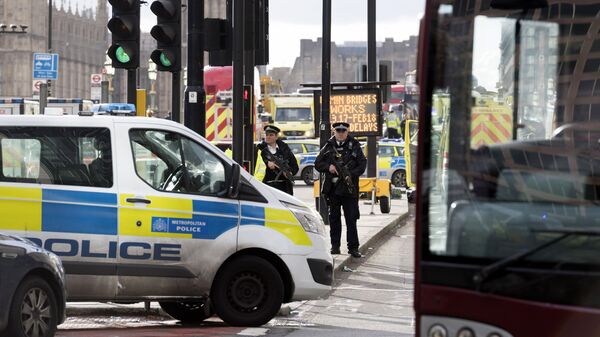In a report, the European Commissioner for Human Rights, Nils Muiznieks, said that he shared concerns Prevent "runs the risk of isolating the very communities whose cooperation is most needed to fight violent extremism."
"The Commissioner recalls that the response to the threat of terrorism should not itself encroach upon the very values of freedom, democracy, justice and the rule of law," Muizniek's wrote.
However, speaking at a UK Home Office counterterrorism meeting in London on May 3, Rob Wainwright, head of the EU's Europol law enforcement agency, described Prevent as the "best practice model in Europe" for tacking extremism.
Prevent, which was introduced by then-Home Secretary, now UK Prime Minister Theresa May, is part of the UK Contest Counter Terrorism Strategy (CONTEST). It aims to stop terrorism and those who may become terrorists.
"There needs to be more transparency to overcome concerns that #Prevent promotes prejudice." @CCLeicsPolice, @PoliceChiefs lead for Prevent.
— Prevent Tragedies (@PreventUK) May 3, 2017
Wainwright's comments have been supported by EU official, Hans Das, who is the head of the European Commission's Terrorism and Radicalization Unit, who cited the UK as a country that has good practice where anti-terrorism initiatives are concerned and described how the EU would support teachers, social workers and healthcare workers to spot early signs of radicalization.
"Civil society has a very important role to play and we need to empower them to play that role. Positive counter-narrative is a very important challenge and we believe we have to support our civil society on these issues," said Das.
Some experts have said that Prevent has had a negative effect and has violated people's human rights, it has been implanted at UK schools, universities and hospitals and is aimed at identifying radicalization.
It is expected that the UK and EU will continue to work closely together on counterterrorism initiatives, despite concerns some of the policies may infringe on people's human rights.



